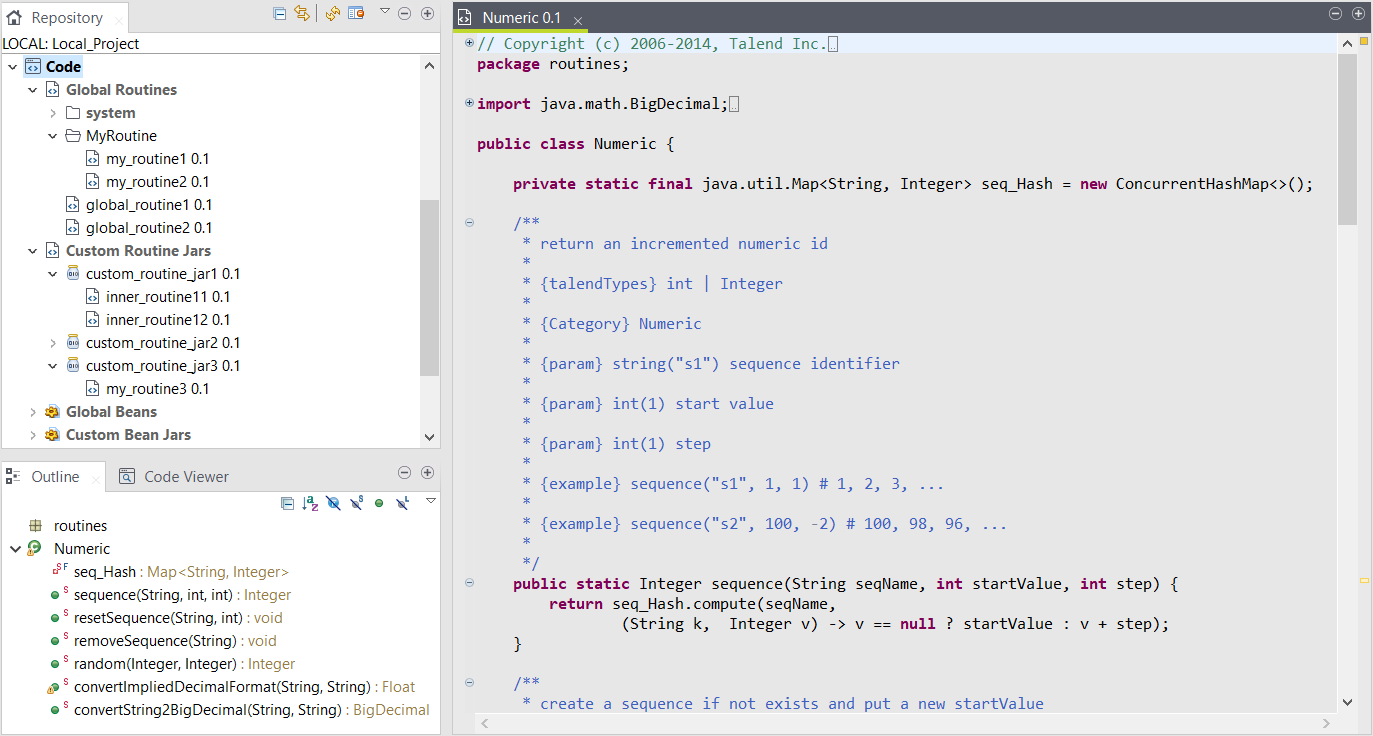What are routines
A routine is a Java class with many functions. It is generally used to factorize code.
Talend Studio allows you to store frequently used parts of code or extract parts of existing functions and then call them via routines. You can call a routine many times from within the same Job or from more than one of your Jobs. They therefore optimize data processing and improve Job capacities. This factorization also makes it easier to resolve any problem which may arise and allows you to update the code used in multiple Jobs quickly and easily.
If you want to enable your Job to call any function in a routine, you need to set up code dependencies on the Job. For more information, see Setting up code dependencies on a Job and Setting up code dependencies on a Joblet.
There are the following two types of routines, and all routines are stored under the Code node in the Repository tree view.
- System routines: the predefined routines that adopt the most common Java methods using the Talend syntax. They are classified according to their usage.
- User routines: the routines that you create or adapt from system routines. There are
two types of user routines:
- Inner routines: user routines that are bundled in custom routine jars. They are created under specific custom routine jar. For more information about custom routines jars, see Creating custom routine JARs.
- Global user routines: user routines that are not bundled in custom routine jars.
They are created under the node. You can create folders to organize global user routines. You
can also set up their dependencies directly on Jobs and Joblets.Information noteNote: By default, user routines migrated from any previous version of Talend Studio are all saved under the node.

